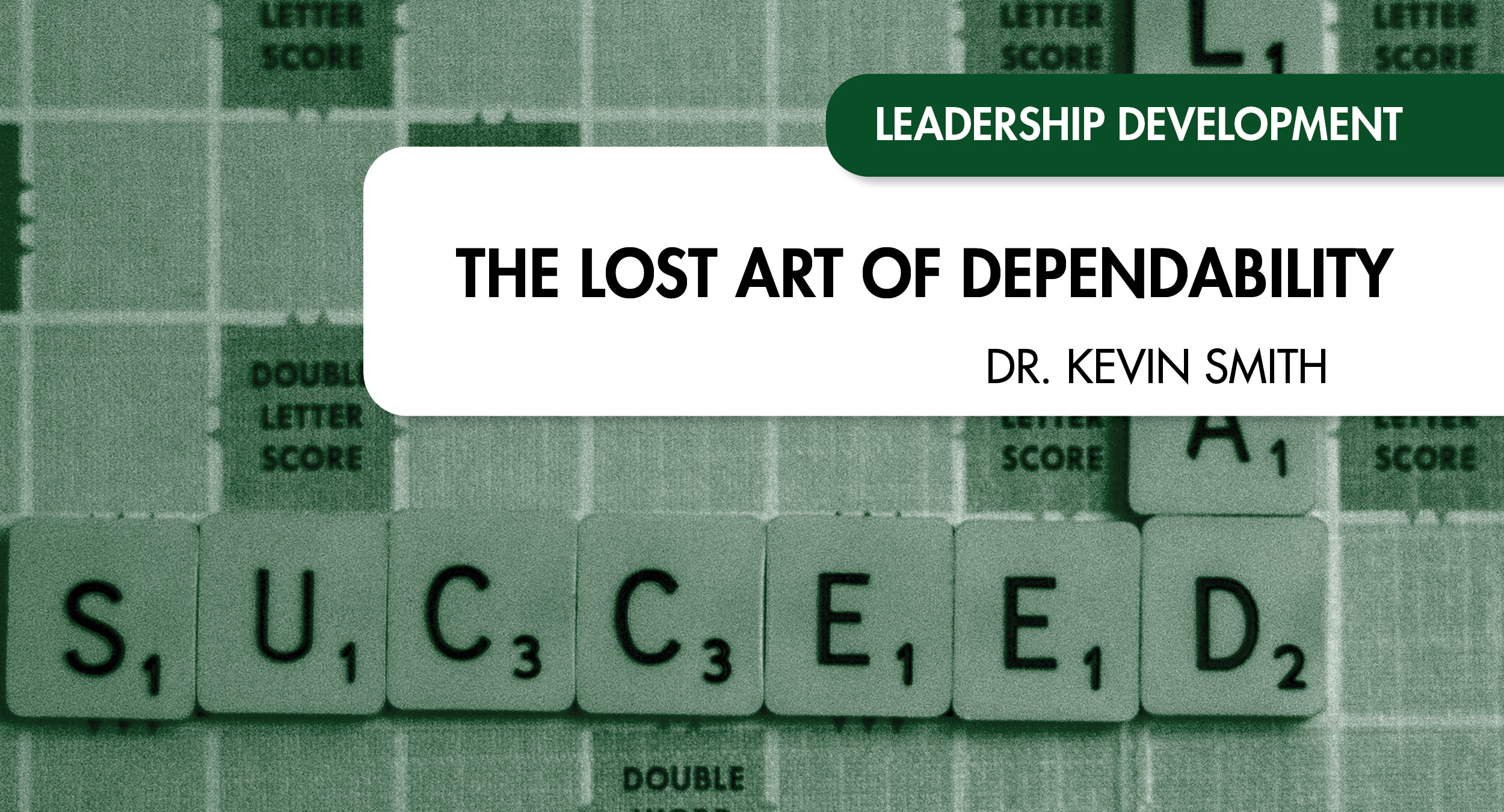
The Lost Art of Dependability
Consider this article a therapy session for me. I’ve about had it with people.
Look, everyone wants to be likable, to please others, and to contribute in any way they can. Naturally, most people want to be wanted and love to be in demand. So, clearly when people invite you to be part or contribute to something, of course, we all want to say “yes”.
We’ve also learned that we need to “build a brand”. To most, this means putting over-inflated titles to their e-mails and profiles like “CEO” when they are really the only person who works for an organization (reminder: you need other “Executive Officers” to be the Chief of them), or using stupid buzz words like “grind,” “hustle,” or “smash” to describe how hard they are working (while they are working hard to post how hard they are working on social media).
If the paradox of people misrepresenting their personal lives on social media (think: posting perfect moments versus reality) isn’t bad enough, I fear the same over-inflated misrepresentation has clearly found its way over to the professional world. It is one thing to “fake it until you make it,” but you still have to do the “making it” part and deliberately step away from the “faking it” part.
Even in my own community, where I am literally surrounded by thousands of entrepreneurs, small to large businesses, and non-profit leaders, I can count a devastatingly high number of how many people who will say “yes” to everything but never follow through. In fact, when they say “yes,” I retain high hopes, but, truthfully, I don’t count on them for much anything. This means I don’t want to do business with them as much, buy their products, partner with them, or much else.
However, I can instantly name those people who will say “yes” and mean “yes.” They are go-to leaders, valuable, and rare.
Dependability is becoming increasingly rare and, therefore, increasingly valuable.
Like most things in leadership, the qualities are not difficult to conceptualize, yet they are rarely seen in practice. Honestly, integrity, competence – these are some of the easiest among them, yet rarely seen with any consistency.
Sure, we all fail. The difference is are you actively trying to get better, or are you passively getting worse?
Here are 3 key ways to develop a habit (and true brand) of Dependability:
Just Say “No”
People who say “yes” to everything have developed an irrational fear of letting others down, wanting too much to be liked, or own a fear of not being needed. Paradoxically, you cannot depend on them to fulfill their promises, therefore they are always at risk of being cast aside. On the other hand, we respect people more who say “No.” They are not unkind or unprofessional, just truthful. When you kindly tell people “no”, you also are telling them that you know how to prioritize. This makes your “Yes” more meaningful.
2. Eliminate “Busy” from your vocabulary
Anyone can say this word and, in fact, everyone does. It’s worthless and lacks depth. When spoken, you may as well tell someone the truth: “I’m sorry, you simply weren’t important enough.” When you actively choose to let this word go, you are making the decision to let go of excuses for your bad behavior, lack of prioritization and, consequently, you become better at #1.
3. Don’t Hedge
I hate hedge words, and when I hear them, I know what is coming next: empty promises. It’s like you can count on not being able to count on someone. Examples of hedge words include: maybe, might, should, would, could, ought to, probably, etc., and if you listen to people, you can actually hear them not committing to things. It’s crazy, just tell me you’re not going to do it, already! On the other hand, when I hear people say things like “I am”, “I will,” definitely, absolutely, etc., you can hear the person making a commitment, and more often than not, these are the people who follow-through.
When I coach business leaders, we actively work on eliminating these words and the results (and self-realizations) are incredible.
The future of our communities are depending on entrepreneurs to create small businesses with products and services we can depend on. Small, medium, and large businesses (and non-profits just as much!) depend on getting the quality people they need and thought they were hiring. The cost of faking it is too high.
Leaders actively seen as “dependable” will always receive the call to lead ahead of others.
